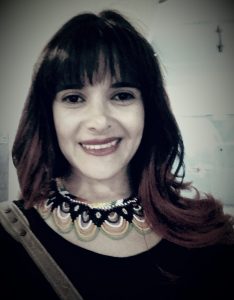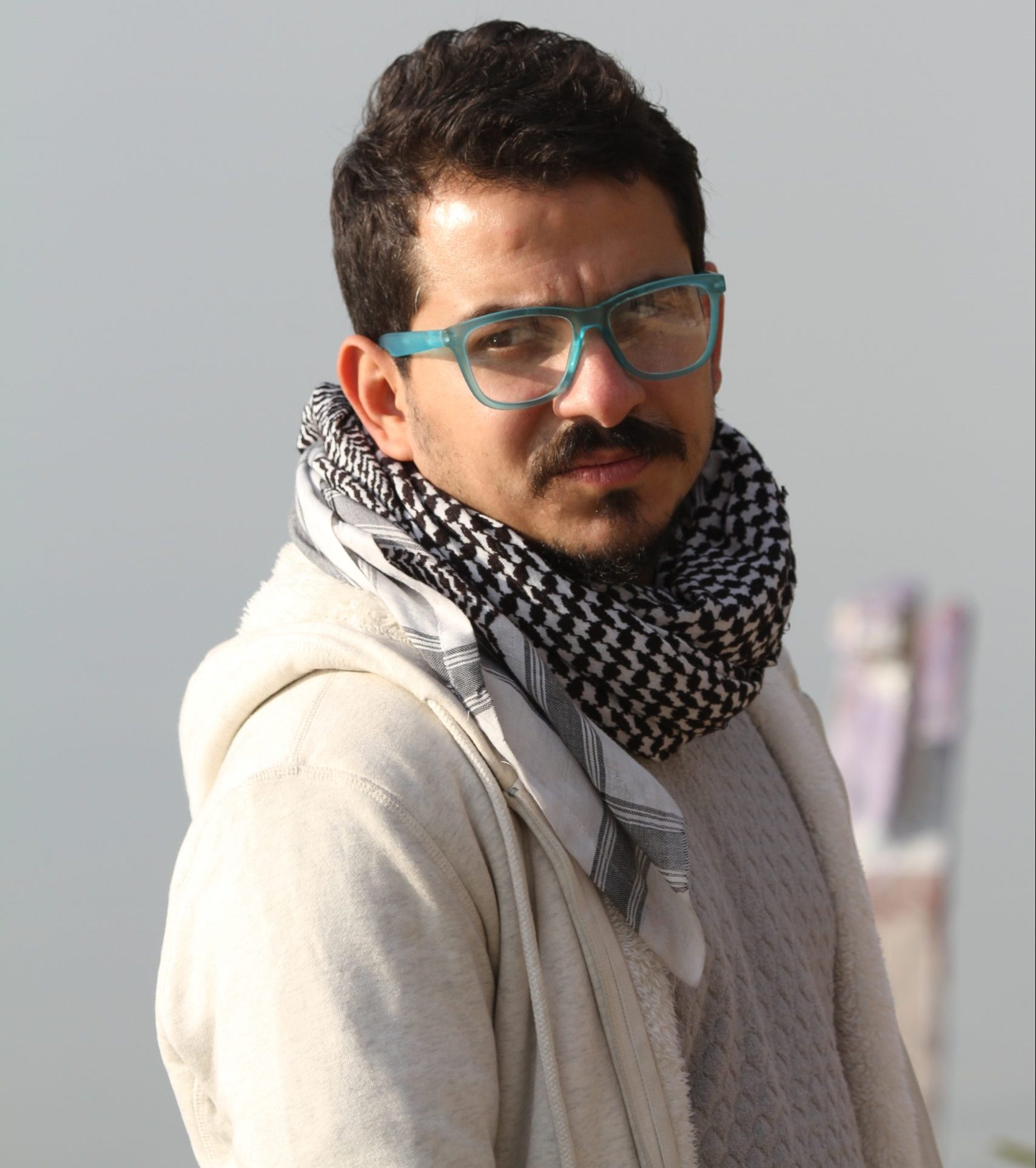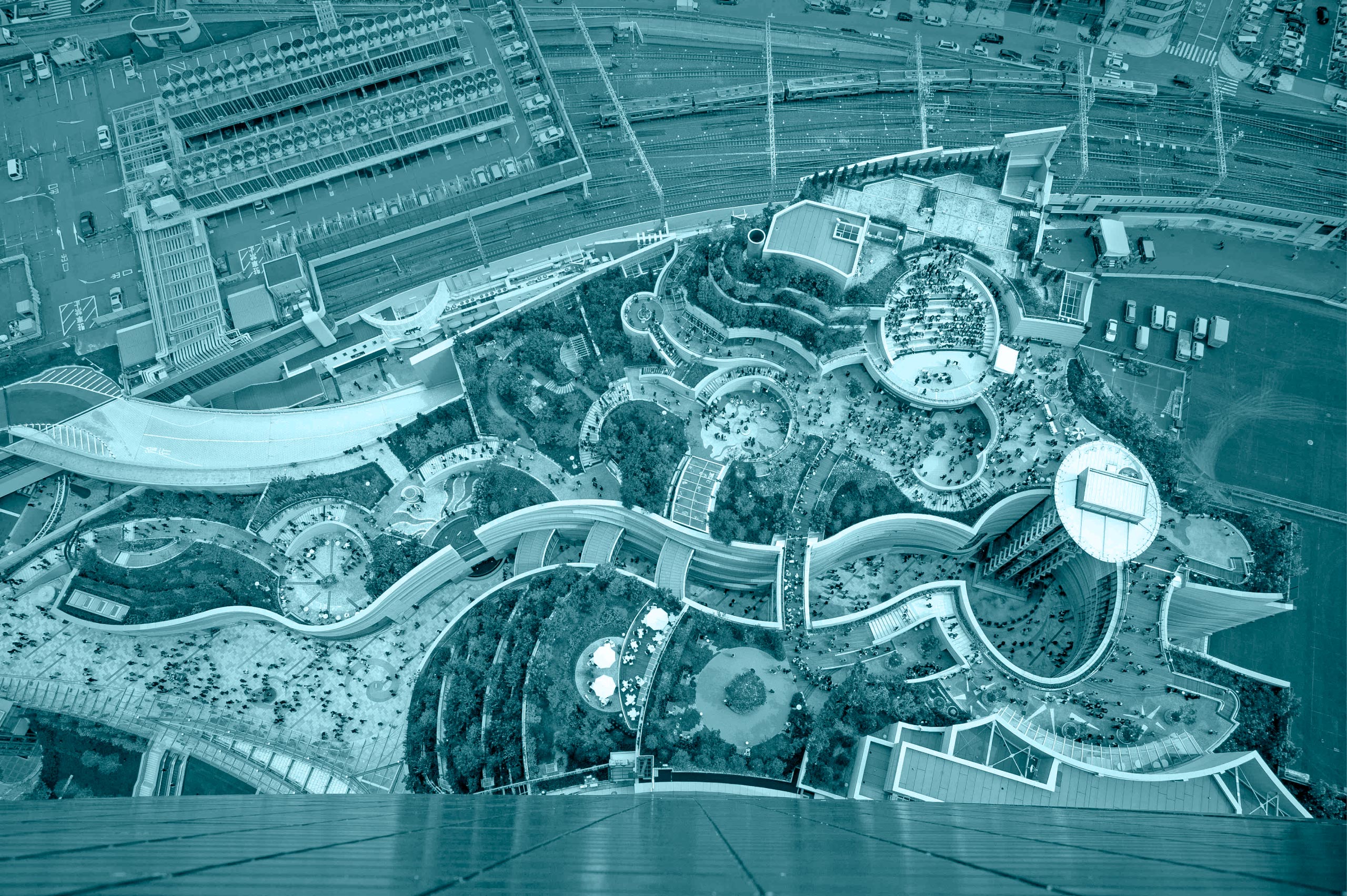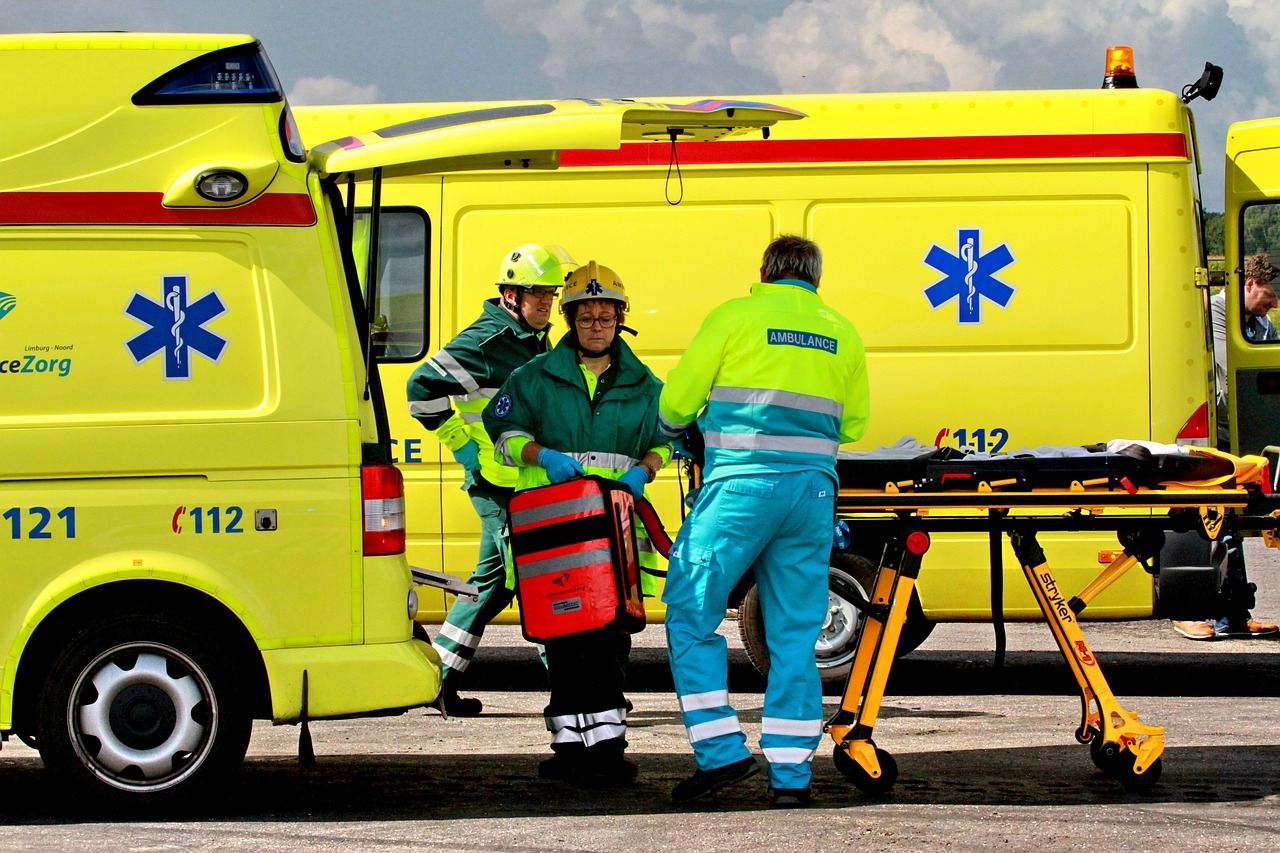The climate is not just an environmental issue. Dealing with climate change also means building a future of peace and stability, especially in regions wounded by conflicts over controlling and managing natural resources. Regions that, in addition to being among the most vulnerable to climate change, are also the hardest hit by social and economic inequity and gender inequality.
Iraq and Colombia are dramatically close, in the words of Salman Khairalla and Paola Arias. They tell us of people’s lives crossed by the Tigris and the Euphrates, by scientific reports, by the availability of food and water, by the importance of a civil society that, starting from the best available science, gets itself informed and committed to orient political decisions. Or, in other words, to build the best possible future.
Foresight – Deep into the Future Planet, a podcast produced by the CMCC and FACTA.

Paola Arias: Full Professor at Escuela Ambiental, Facultad de Ingeniería, Universidad de Antioquia – Colombia. Member of the Working Group I (WGI) of the Intergovernmental Panel on Climate Change (IPCC), GEWEX Hydroclimatology Panel (GHP), Grupo de Trabajo Regional Hidrogeomorfología del Amazonas (UNESCO), Comité Científico Cambio Climático Gobernación de Antioquia-Colombia, WCRP Lighthouse Activities – My Climate Risk.
 Salman Khairalla: Executive Director, Tigris River Protectors Association (Iraq). Born in Baghdad, his family was originally from Basra in southern Iraq. Co-Founder and CEO in Humat Dijlah (Tigris River protectors Association), member of the International Campaign to Save the Tigris River and the Iraqi Marshlands.
Salman Khairalla: Executive Director, Tigris River Protectors Association (Iraq). Born in Baghdad, his family was originally from Basra in southern Iraq. Co-Founder and CEO in Humat Dijlah (Tigris River protectors Association), member of the International Campaign to Save the Tigris River and the Iraqi Marshlands.
Podcast transcript
PAOLA ARIAS: I think that civil society will be one of these factors that will help to trigger climate action. You can see also how young people are starting to think differently, like are thinking differently from older people. And I think that is something that will help transformation.
SALMAN KHAIRALLA: The future we in Humat Dijlah look for will find water protectors for all the small, tiny river canals inside Iraq. All the local community should protect their rivers. This is what we are looking forward for the future.
There is no doubt that the scientific community has been alerting and discussing the risks and consequences of the climate crisis well before anyone else in the world understood what was coming of it. For the past three decades, scientists have tried to speak up and make it clear that we needed to act, as a collectivity, to mitigate and reduce the risks.
And yet, until civil society has not stepped in, much more recently, climate change and its impacts have remained a topic for a small and quite isolated community. In the last few years, thanks to many organisations, movements and active people, mainly young people and people from the Global South and indigenous people, finally, the climate crisis is being recognised and better understood. Hopefully, there is a stronger common effort to reach agreements, prompt ideas, design and apply concrete solutions at the local and global levels. But there is no doubt we have to push forward and be more committed to working in the right direction at all levels.
SALMAN KHAIRALLA: In the end, there is a big connection if we want to back again to the climate change and water issues. So but in Iraq, we have a lot of a problem, like with climate change. The people still talk about the basic things, especially at the level of the governments and the authorities. They are still working on the basic things, and even there is no implementation of basic things. And this is what makes us worried about the future. The future of my daughter. The future of my kids. Of all the future generations. What’s their future? There is no future for them. The future is coming when there is water. The future is coming when one will protect our climate.
I am Elisabetta Tola, a science journalist, and this is Foresight – Deep into the Future Planet, a podcast produced by the CMCC Euro-Mediterranean Centre on Climate Change and FACTA.
Today, we explore the ground where science meets civil society. We will do it by going back to one of the environmental resources that play a key role in the climate crisis, water. We have discussed the science of water and the current research in episode 3 of this podcast. On that occasion, we also talked about one of the most important and massive rivers of the world, the Nile, a major protagonist in the history of human civilization. Today we will look at how protecting water resources is crucial to grant peace and fair development in two other countries from the Global South, Colombia and Iraq.
Colombia and Iraq are portrayed in the global news more often for their complex history of conflicts rather than for their environmental problems. And yet, for different reasons, they both face environmental challenges that should not and cannot be underestimated. As we will hear, taking care of the environment has a lot to do, as a matter of fact, with the possibility of building a future of peace and of stability in regions where conflicts, including those for the control and management of resources such as water and biodiversity, are not a future threat. They are an actual reality.
So, let’s meet our two protagonists, whose voices open today’s episode. They come from two different ends, but, as we will see, their goals and commitments are quite alike.
PAOLA ARIAS: I am a civil engineer…
Paola Arias is a Colombian civil engineer and a climate scientist at the Environmental School of the University of Antioquia. She has a PhD in the water cycle and hydro climatology, and got involved in Working Group I of the IPCC Sixth Assessment Report. In recent years, Paola Arias has been working more and more in connection with civil society and indigenous movements recognising the importance of having an active, prepared and committed civil society that can contribute, in connection with scientists, to orient political decisions in the right direction.
SALMAN KHAIRALLA: One day, in a survey inside the marshes, we heard a lot of stories about people who don’t have water… I left my city, Baghdad, to be in Basra because of the warfare and the terrorist and the religious fight and war, the ethnic war between Sunni and Shia in Baghdad. I left Baghdad to Basra, and at the same time, those people left the marshes and they went to Karbala or Najaf because of the water. So here I realised that water is used as a weapon now.
Salman Khairalla started his activity as a young Iraqi environmental activist more than a decade ago, focusing on the preservation of water and, in particular, of the two main Iraqi rivers, the Tigris and Euphrates. While he kept working with civil movements and associations, Salman Khairalla went on to study environmental engineering. Today, at 31, he is the co-founder and executive of Humat Dijlah, which means Tigris River Protectors, a civil society movement working in tandem with Humat al-Forat, the protectors of the Euphrates river. Humat Dijlah works to find solutions to manage the water resource sensibly, stop the building and development of the many dams along the rivers, and solve the pollution problems raising from oil extraction activities. The movement has grown steadily, involving people and communities from the cities and rural areas around the basin of the two big rivers down to the city of Basra, where the rivers flow into the Persian Gulf.
SALMAN KHAIRALLA: Let me bring you back to 2015 when we start to talk about only water issues or talking about the Haditha dam or small dams. Nobody was listening to us. No one was listening to us. No one. And when we were talking, all the people were laughing now and saying, “Well, Salman, there are people killing in the street because of Daesh. Why are you talking about water”. I said, well, it’s the same thing. People are killing because they don’t have water, and Daesh themself, are using water as a weapon because they want to contaminate and poison it. Just imagine what’s going to happen if they will poison the dams downstream.
Water and climate, water and conflicts… Connections become more evident and dangerous in regions where the political, social and economic conditions are already critical, as it happens in many countries in the Global South of the world.
This is a trend that can be seen both in Colombia, as Paola Arias discusses with us, and in Iraq, where Salman Khairalla tells us a story on how irresponsible exploitation of water resources ultimately affects economic sectors that used to be important for its country, Iraq, and the well being of its people.
PAOLA ARIAS: Together with some of the coauthors of Chapter 8 in Working Group I and also some of Chapter 4 of Working Group II of the IPCC Sixth Assessment Report, the chapters specifically focusing on water, we just submitted a paper that got accepted, which is doing a reflection on how water remains a blind spot in climate change policies. Of course, we have to focus on how we are going to reduce emissions and what are the different mitigation strategies. Of course, we also talk about adaptation, which is pretty important, particularly for the most vulnerable regions. But water is not at the centre and is not the focus of the discussion. And water is super important, not only because it is something that ecosystems and also human systems depend on but also because adaptation and mitigation strategies depend on the availability of water. Of course, climate change has produced an intensification of the water cycle. And it means that the seasonality has changed; the variability of the water cycle has changed, but also the extremes of the water cycle. So that’s why we have the manifestation of very intense and heavy rainfall in some regions, and in other regions, we have longer and even stronger droughts. So, in the end, water availability and I would say even more water security, is driven by climate change in many regions of the world, but in particular in the more vulnerable regions where you have social inequity and socioeconomic inequity in general. But you also have a lot of gender discrimination, but you also have a lot of conflicts, even for the use of water. So then you have the worst elements to configure even stronger and more negative impacts. And that’s what actually happens in the Global South.
SALMAN KHAIRALLA: We are focusing now on the common thing between drought and climate change. We are focusing on producing a policy paper to indicate a solution that our Government should implement in collaboration with a big international organisation for the people in the southern part of Iraq. There is no drinkable water for the people in the Southern part of Iraq. The river there is not swimmable, not fishable, not drinkable, not even for irrigation. You cannot use them.
Iraq, in the late ‘90s, was the second country to export dates from date palms around the world. They were dates from Basra. Two-three years ago, I was in Basra, and I ate dates, and I asked where they were from. They said, “Well, these are Iranian dates”. I said, “Well, how, how is this possible? We are in Basra, and we are eating Iranian dates!” And they said, “Well, Salman, do you know the fish that you just ate before the dates that was Iranian fish as well. It is not an Iraqi fish because most of the Iraqi fish now is contaminated in Basra by oil and the oil refinery and everything. So we bring even our fish from Iran”. I said, “Well, there is no fish, there are no dates. So for me, there is no Basra”. Because Basra meant fish and dates for the people before. Now, it means oil for the people. And that’s what’s making the problem worse and worse and worse, to think about oil only.
When we look at the perspective on how to act on the climate crisis from a Southern country viewpoint, a number of issues come to our attention.
Let’s start with the science itself. Climate modelling, explains Paola Arias, has improved dramatically in the last few years, and we have come to understand and see much better the representation of different aspects of the climate system, even at the regional level. And yet, there is still a lot of need for better data and local monitoring, particularly when it comes to regions that have been less monitored and studied, as it happens in diverse areas of the Global South. Here, the resolution of the models, for instance, can still be a problem, according to Paola Arias.
PAOLA ARIAS: You go to regions like Colombia or, in general, in regions with very complex topography, then the spatial resolution starts being a problem. Because even if the resolution has improved a bit, it is not able to represent all the different features of the landscape in regions like Colombia. So that’s why we also use regional models that try to downscale the global simulations. But also, to perform regional simulations, here in general in Colombia and in different parts of South America, we are already working with something that is called convective permitting simulations, with high-resolution simulations that are able to reproduce convection, which is pretty important for precipitation. And in general, we can see some improvements, but it is also a matter of observational data because here in regions like the Global South, particularly in Central and South America, but also Africa, even worse in Africa, you have a lack of observational data. You have a scarcity of these observations. And that is something that really prevents the development of observational studies that help us improve the model simulations.
So it is something that could be a barrier, but it also has promoted a lot of science development in the region. I can talk about South America, and how the scientific community has been growing regarding climate modelling, climate simulations, and weather simulations also. Also, the impact community, the adaptation community in Colombia, and in general in South America, has been growing a lot during recent years. And this is because of the necessity of having a strong community that helps in the orientation of policies, for instance, or strategies that are more at the national or regional level. And in particular, having more reliable simulations and projections is pretty important, for instance, when we talk about adaptation, which is something pretty urgent for regions like Central and South America.
As we have heard in episode 3 of this podcast, water is a key issue not only from a scientific point of view but also from its social, cultural, economic, and even historical dimensions. And analysing the role of water in different areas, regions and countries requires a profound knowledge of the local environment and the complexity that entails it. The Colombian case, again in Paola Arias words, is different from the Iraqi case, as Salman Khairalla tells us, but they both tell a story where water is not merely an environmental resource.
PAOLA ARIAS: For instance, I can tell you about my country, Colombia, where you are having, for instance, regions that are becoming drier or the regions are becoming wetter. So, for instance, in Colombia, we have a very complex topography: at this moment of the year, we are having like the effects of a third La Nina constitutive event. In Colombia, we have a lot of precipitation, so we have a lot of landslides and we have a lot of floods. And we have a lot of vulnerable populations that are living in vulnerable areas. But at the same time, we have a lot of activities: we have a lot of mining in Colombia, a lot of agricultural activities, not only for agriculture per se but also, for instance, cattle. We also have a lot of biodiversity, which is pretty important for us, but it is also a main reason for pressure from the Global North. Because from the Global North, extractivism is still occurring, for instance, for renewable energies. Where are the materials for renewable energies coming from? Mostly from the Global South.
So that’s why you have different pressures over the territory that are demanding resources, that are also demanding water, that is also putting pressure on people.
SALMAN KHAIRALLA: So the Tigris and Euphrates Rivers are the two rivers I should mention as Iraqi rivers. No, they belong to Mesopotamia. And Mesopotamia is made up of four countries in the region, which are Turkey, Syria, Iraq, Iran and the Kurdish region between all of them. Those two rivers mean a lot to those four countries. But, in the end, for the Iraqis especially because the longest river stream is in the Iraqi area, of course. And all our civilisation is close to or owns one of those rivers. The Iraqi marshes that we have right now it is the connexion between two rivers, the Euphrates and Tigris River, and at the same time, these marshes it’s our bridge with our civilisation from 4000, 6000 years ago till now. Why? Because the people, the Arab marsh, still have a few Sumerian words, they still use them now, they thought it was an Arabic word, and they use it in their Arabic accent. But it is Sumerian words. They still use it. They still used the same way of building boats, fishing, hunting, and everything from the Sumerian time. And even that is one of our problems, that they still use that the irrigation system is still the same system from the Sumerian time, which is the only fault that we have right now. We should fix it. But in the end, those two rivers mean a lot. It means our bridge was our civilization.
PAOLA ARIAS: Sometimes we are so isolated being keen on the physical problem. But the point is that this physical change is not merely physical, the roots of this problem are economic, social, cultural, political. And that’s why we should also consider all the other type of views that could help to improve our understanding of our and also the proposition of a strategy regarding climate change. In that manner, for instance, local knowledge is pretty important. Because science is so colonized. The only valid way of knowledge is, is this hegemonical science that has a scientific method and that has a structure and epistemology. But really, there is other knowledge that is very, very important when we are dealing with something so transversal like climate change. In particular, social movements somehow include these. And demanded that social movements are more organized, better structured, and with strong fundamental knowledge, we can also have a very critical, social and civil society. Which we really need because this is, as I mentioned, very political. And if we have people that are politically prepared, that are not ignorant in many, many aspects that are behind this climate change crisis, then I think we could look for another type of decisions.
SALMAN KHAIRALLA: So we started really from the scratching, collecting a lot of stories and experience from all around the world, from a lot of internationals. But we didn’t copy it and placed it in Iraq. No, we put our sauce on it. We put our spicy on it, to bring it and to do it as an Iraqi environmental movement. This is not a Dutch movement or German movement or Lebanese movement, or American movement brought to Iraq. No, it is an Iraqi one created from the challenge we face inside Iraq.
What we believe it we should get build first trust in the local community. And that’s what we got in the beginning, which is what gives us a lot of power. They trusting from the local communities when they hear about the story, everything, how we are present, all of the challenges, all of the alternatives, and all the solutions for them and for others.
It was horrible in the beginning. No one listened. But now there are a lot of people listening, and now we focusing more on the level of the local authority because now the local authority, at least they, are listening to us, and they try to find a solution.
Intertwining science with economics, history, social and cultural knowledge requires a strong collaboration between the scientific community and civil society. Something that is happening, finally, at many levels and in many countries. Paola Arias reflects on how this trend is developing in Colombia, her own country. And Salman Khairalla tells us how, from an organisation founded by two young activists, his movement, Humat Dijalah, has become a focal point for many local communities and has grown to involve also a lot of scientists and experts from many fields.
PAOLA ARIAS: I think civil society has been doing a lot of things on its own, but they are now looking more for the company of scientists at different levels. In my personal case, yes, I have contact with different civil society groups, and collectives, for instance, here in my city, which is a valley with mountains and slopes surrounding it. These slopes are pretty densely populated areas. Those are pretty vulnerable neighbourhoods, suffering slides and flash floods. There are young people in these poor areas, which are really really poor neighbourhoods with a lot of violence and lack of opportunities, that are organising themselves and putting pressure on the local governments to act and protect their neighbourhoods and improve climate adaptation.
I see these social movements being strong. They are stronger now. They are also learning a lot from science. They are trying to get involved or read a lot about scientific knowledge. For instance, last year, the government started a pilot on fracking in one region in Colombia. It got a lot of opposition from the local people. They were able, with a lot of lawyers and a lot of scientists, to push back this pilot. And in the end, the company that was doing the pilot had to leave. And it was because there was a civil society pretty organized.
I think that this top-down approach that has been used for negotiations on climate change doesn’t work the way it should. We have done more than 20 years of negotiations, and we do not see the results as fast as we need it. And I think that civil society is one of these factors that will help to trigger climate action.
SALMAN KHAIRALLA: With two people, we started to create this movement. Of course, with a lot of support from our friends, and our colleagues. And now, after five or six years, Humat Dijlah has become true. It’s become a movement, as we decided. We are fighting for the environment, water, and cultural heritage, which are three difficult topics. We will come and talk a lot about them in Iraq.
We started from scratch. So we scratch Humat Dijlah on a stone to bring it to life. Humat Dijlah means a lot to a lot of people.
Today, we have more than one level, like we have professors from the academic level, which are our resources from more than one university in Iraq. They are all our academic resources. We get from them scientific resources. And we have a level with students, which are also scientific students who are studying master’s or baccalaureate in environment or water management or something like that. And we also have some engineers. And we also have students from primary and secondary schools. We have the local community. We have people, just ordinary local people from the cities. They are joining this movement. The movement is open to all people.
In many cases for a problem that a wrong development system has generated, there can be viable alternatives that can better respond to the needs of the people and to the preservation of the environment. However, Paola Arias explains to get there, scientists should work closely with the communities explore and understand more the other dimensions of the climate problems and the capacity and knowledge of the local communities to contribute to a better solution.
PAOLA ARIAS: So for me, this really has become like a life project, like a personal project, because it’s not only like that I go to class, and I teach some topics or that I do some research and then I publish and then I follow all of these scientific systems where you have to publish and then your ego will be satisfied. I really want to be a contributor to transformation, having different conversations with the students, for instance, trying to give them different perspectives. I am an engineer, a civil engineer. I never saw anything like this during my undergraduate studies. I was always focused on the engineering part but never on other aspects. I don’t want my students to get that. My students are from an environmental engineering, which is more open to other aspects of society, but they are still in engineering, which is pretty dominated by what people call hard sciences. And we need to see other types of knowledge, other types of perspectives.
SALMAN KHAIRALLA: In Iraq, when we create Humat Dijlah, we think about talking about the environment and water and cultural heritage, or from the political and economic and social perspectives. We don’t want to talk about the environment and water as water. No. There is a perspective to talk about them. And those three perspectives, the political one, the economic and the social, that’s what makes up all the challenge in front of us. That’s what’s brought a lot of a threat for the movement.
PAOLA ARIAS: For me, that is like my bet, you know, like I try to give other perspectives to build other types of dialogues with the students but also with colleagues in other aspects, in other topics. So that’s like my idea, right? How can we also try to move society from science or the scientific background with the scientific tool, which is pretty important? This is not something about passion or beliefs. This is science. Science is showing very important things. And thus, how could we legitimate this science?
When looking into solutions, science can certainly guide a transformation. And sometimes contribute to a completely new approach to the management of environmental resources. In Iraq, there is strong concern about the impacts of all the dams built in the past decades on the Tigris and Euphrates rivers on preserving the quantity and quality of available water. And even more concern against new projects for new big dams, particularly when the droughts become more and more severe. Salman Khairalla describes which potential alternatives could be undertaken, also looking at how other countries with a similar risk of water scarcity face the problem.
SALMAN KHAIRALLA: First of all, moving all the dams, moving all the dams, moving all the dams. This is the most important point that we should do it. All these slogans that the governments use in Turkey, Syria and Iraq and Iran, calling them the hydropower dams, are wrong. No, they are just a corruption project. It’s never been an eco-friendly project, helping people. Because of the effects from those dams, for the river and for the water quality, and the quantity, and the biodiversity, and the habitat, and zooplankton and phytoplankton. For everything, the (negative) effect, it’s more than the benefit we got from those dams. We will release a new report talking about how the Iraqi and Turkish dams are affecting evaporation. We lost around 10% of our water because of the dams. Reservoiring the water in this way is really horrible, and we should change it. We should change it to a new way.
And there are a lot of alternatives. We are a civil society movement. We don’t want to talk about something without giving alternatives. And all our alternative, of course, belongs to the scientific things that happen in other areas. For instance, they are using right now in South Africa or even in India, which is one of the beautiful projects called Water harvesting. Water harvesting it’s giving more than one benefit. First of all, you will do recharging for the groundwater. You will do recharging for your rivers. You will tell the local community and give them all the tools to moderate and manage their water by themselves. You will have this reservoir, collecting the rain, collecting the flood, collecting all the water coming naturally you and you will use it in your way, in a new irrigation system, you can use it in many, many ways, in a good way.
We are not making the challenge against the governments here. No, we are bringing a new idea, a new methodology, a new alternative to do it and implemented in our area. What I mentioned is just like one solution to one challenge. But if we want to talk about pollution, we can talk about it. If we want to talk about air pollution, we can talk about it. We are focusing on dams since that is a problem if we want to focus on water management.
One of the issues that is emerging, together with the new protagonism of the scientists and the civil organisations from the Global South, is the growing awareness that science, too, as many other human activities and enterprises we rely on, suffers from a great degree of post-colonial attitude. Paola Arias explains the many levels at which colonialism still shows itself, even if scarcely recognised and discussed in science.
PAOLA ARIAS: We are living in a very colonized world, and science is colonized. You can really see how the Global North pretty dominates science. You can really see that even as a Latin American female scientist, sometimes I feel that not everyone acknowledges the development, the scientific development that we do in these regions, like equally important or equally legitimate, like the ones developed global,ly not in very well-known institutions. Also, the scientific system is pretty… I would call it perverse, a way of operating. For instance, in all the publishing aspects, when you have to submit a paper to a journal, first you need money to pay for publications because most of these journalists are enterprises, industries that are always charging for publication. And it is not something cheap for us. I mean, it’s a pretty big investment for a scientist in the Global South. Second, even if you have the money, you will probably have more barriers to publishing your science because sometimes there are all of these biases, conscious or unconscious biases, but they are there, also colonizing the idea of science. And even if you are able to publish, sometimes papers from the Global South are not as well cited as papers from the Global North. So, there are a lot of biases there. And there are many aspects of science that show how this system is absolutely Global North centred.
In order to fight the climate and the environmental crises, change has to be embraced, undoubtedly. Science needs to be more and more integrated with other expertise to build common knowledge that will give people, and their communities, the capacity to respond to the current challenges with a positive but firm approach. We cannot afford to wait and waste more time. But one ingredient is truly precious, the great number of young people committing to bringing forward the action. In many countries, they are those uprising and demanding action and commitments from their governments. They have a major role to play. The future is truly for them to shape and build. They have the right to own it fully.
SALMAN KHAIRALLA: Truly, maybe we have more young people in Iraq than old ones. That, in fact, is what gives us more hope for the future. Maybe not for my future. No, but at least for my daughter’s future. Because these things will not be fixed in 50 years, maybe they will need more than 50 years. But in the end, there is a lot of hope.
What we saw in 2019 with the Iraqi uprising, the October uprising, and the October revolution in Iraq has brought another step forward. Iraq before 2019 is different from that after 2019. Now, even the small new young parties in Iraq, they start to think about the environment. It makes me feel proud when they call us or they contact us to just give them what is the situation right now with the environment and water? I really feel proud to listen and hear that there are a lot of new young parties, and political parties in Iraq. They are looking forward to helping with the environment and water. So this gives us a lot of opportunities for the future. So this is something we’ll change, absolutely. Otherwise, we will keep fighting until something will happen. We will not lose this fight. Never.
You have listened to Foresight – Deep into the Future Planet, a podcast produced by the CMCC Euro-Mediterranean Centre on Climate Change and FACTA.
The concept, interviews and texts are by Elisabetta Tola and Giulia Bonelli.
The audio editing is by Lisa Lazzarato.
The original music is by Massimo Bassan
The executive producer at CMCC is Mauro Buonocore.
Foresight – Deep into the Future Planet, is available on climateforesight.eu and wherever you listen to your podcasts.
Photo credits: Chibaish Marches, Iraq – An Nasiriyah – CC from Wikimedia commons







